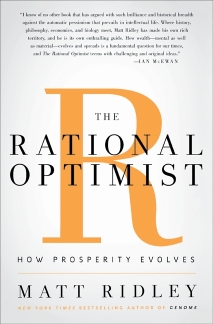- HOME
- INTRO TO THE FORUM
- BADLY WRITTEN, BADLY SPOKEN
- GETTING
TO KNOW ENGLISH - PREPARING FOR ENGLISH PROFICIENCY TESTS
- GOING DEEPER INTO ENGLISH
- YOU ASKED ME THIS QUESTION
- EDUCATION AND TEACHING FORUM
- ADVICE AND DISSENT
- MY MEDIA ENGLISH WATCH
- STUDENTS' SOUNDING BOARD
- LANGUAGE HUMOR AT ITS FINEST
- THE LOUNGE
- NOTABLE WORKS BY OUR VERY OWN
- ESSAYS BY JOSE CARILLO
- The Three Basic Word-Positioning Principles For Emphasizing Ideas
- Use the Reflexive Form When The Verb’s Object is The Doer Itself
- Ferreting Out Truth And Falsehood From The Flood of Poll Propaganda
- Using The Connectives To Flag The Contours And Detours Of Our Ideas
- My Hunch Was Right About The Usage Of “Between” And “Among”
- Your Handling Of Numbers And Time Reflects The Clarity Of Your Thinking
- ABOUT JOSE CARILLO
- READINGS ABOUT LANGUAGE
- TIME OUT FROM ENGLISH GRAMMAR
- NEWS AND COMMENTARY
- BOOKSHOP
- ARCHIVES
TIME OUT FROM ENGLISH GRAMMAR
This section features wide-ranging, thought-provoking articles in English on any subject under the sun. Its objective is to present new, mind-changing ideas as well as to show to serious students of English how the various tools of the language can be felicitously harnessed to report a momentous or life-changing finding or event, to espouse or oppose an idea, or to express a deeply felt view about the world around us.
The outstanding English-language expositions to be featured here will mostly be presented through links to the websites that carry them. To put a particular work in better context, links to critiques, biographical sketches, and various other material about the author and his or her works will usually be also provided.
I hope you’ll enjoy the new selections that will be presented here each week.Joe Carillo
Collective intelligence is the secret behind our evolutionary success
Experts have ascertained that all the ingredients of human success—tool making, big brains, culture, fire, even language—had been in place for half a million years, but as late as 45,000 years ago, humans had minimal ecological impact on their world. All of a sudden, however, they began to rapidly dominate the planet, producing new tools and technologies and pursuing widely different ways of life. Precisely what triggered this epochal explosion of evolutionary progress and human creativity?
In an article written for the May 22, 2010 issue of the Wall Street Journal, “Humans: Why They Triumphed,” Matt Ridley says that the key to this phenomenon is collective intelligence, the notion that what determines the inventiveness and rate of cultural change of a population is the amount of interaction between individuals. “Even as it explains very old patterns in prehistory,” he explains, “this idea holds out hope that the human race will prosper mightily in the years ahead—because ideas are having sex with each other as never before.”
Ridley argues that trade was the most momentous innovation of the human species, one that led to the invention of invention. “Once human beings started swapping things and thoughts,” he explains, “they stumbled upon divisions of labor, in which specialization led to mutually beneficial collective knowledge…The story of the human race has been a gradual spread of specialization and exchange ever since: Prosperity consists of getting more and more narrow in what you make and more and more diverse in what you buy. Self-sufficiency—subsistence—is poverty.”
A former zoologist, conservationist, and journalist who later wrote “The Rational Optimist: How Prosperity Evolves,” a book about human evolution and genetics, Ridley believes that humanity can look forward to a future brighter than what the pessimists think are in store for us. “Given that progress is inexorable, cumulative and collective if human beings exchange and specialize,” he says, “then globalization and the Internet are bound to ensure furious economic progress in the coming century—despite the usual setbacks from recessions, wars, spendthrift governments and natural disasters.”
Read Matt Ridley’s “Humans: Why They Triumphed” in the Wall Street Journal now!







